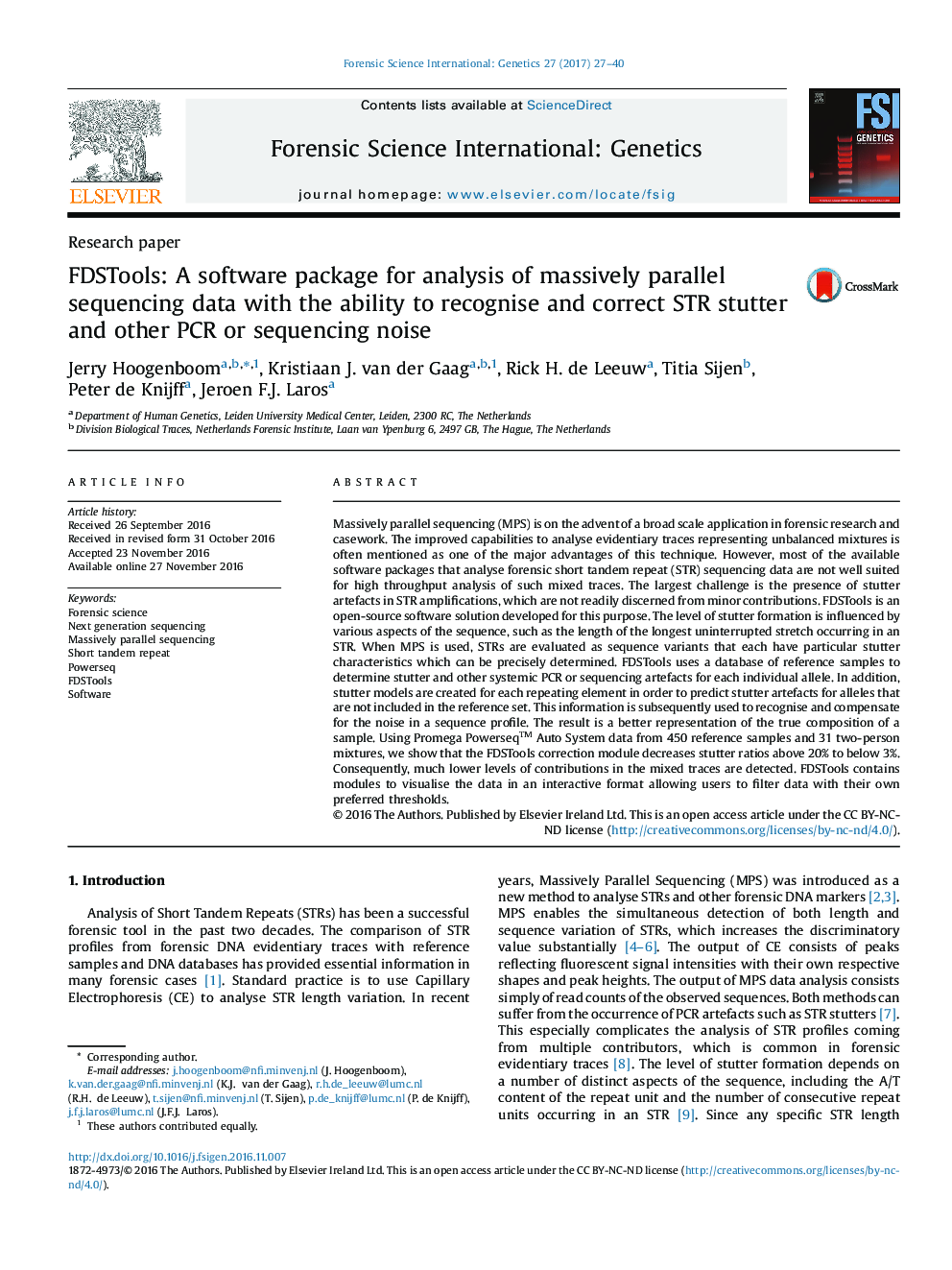| کد مقاله | کد نشریه | سال انتشار | مقاله انگلیسی | نسخه تمام متن |
|---|---|---|---|---|
| 6462908 | 1422151 | 2017 | 14 صفحه PDF | دانلود رایگان |

- FDSTools facilitates characterisation and correction of systemic noise in MPS data.
- Automatic threshold-based allele calling facilitates analysis of mixed samples.
- 450 reference samples and 31 mixtures were analysed with the Powerseq⢠Auto System.
- FDSTools substantially reduced allele drop-in in mixtures with a 5% minor component.
- After noise correction, PCR hybrid artefacts exceeded remaining stutter in mixtures.
Massively parallel sequencing (MPS) is on the advent of a broad scale application in forensic research and casework. The improved capabilities to analyse evidentiary traces representing unbalanced mixtures is often mentioned as one of the major advantages of this technique. However, most of the available software packages that analyse forensic short tandem repeat (STR) sequencing data are not well suited for high throughput analysis of such mixed traces. The largest challenge is the presence of stutter artefacts in STR amplifications, which are not readily discerned from minor contributions. FDSTools is an open-source software solution developed for this purpose. The level of stutter formation is influenced by various aspects of the sequence, such as the length of the longest uninterrupted stretch occurring in an STR. When MPS is used, STRs are evaluated as sequence variants that each have particular stutter characteristics which can be precisely determined. FDSTools uses a database of reference samples to determine stutter and other systemic PCR or sequencing artefacts for each individual allele. In addition, stutter models are created for each repeating element in order to predict stutter artefacts for alleles that are not included in the reference set. This information is subsequently used to recognise and compensate for the noise in a sequence profile. The result is a better representation of the true composition of a sample. Using Promega Powerseq⢠Auto System data from 450 reference samples and 31 two-person mixtures, we show that the FDSTools correction module decreases stutter ratios above 20% to below 3%. Consequently, much lower levels of contributions in the mixed traces are detected. FDSTools contains modules to visualise the data in an interactive format allowing users to filter data with their own preferred thresholds.
Journal: Forensic Science International: Genetics - Volume 27, March 2017, Pages 27-40